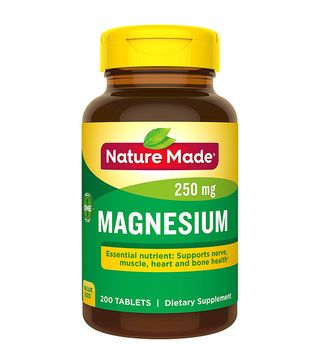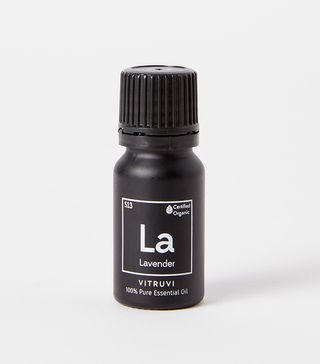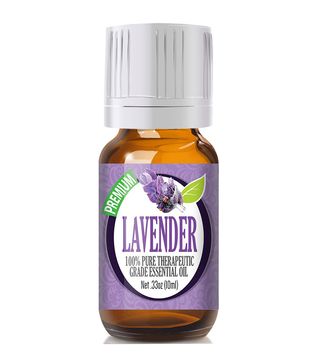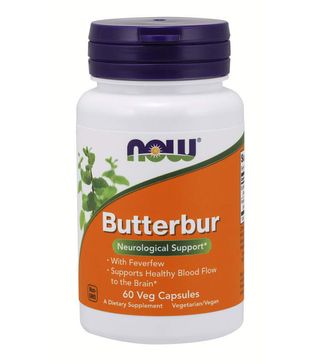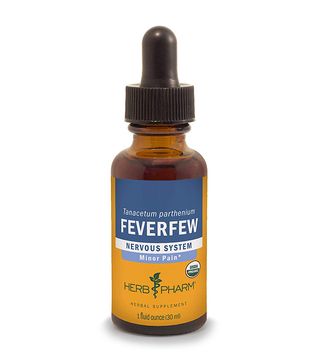The 5 Best Natural Migraine Remedies, According to Science


A migraine is like a headache that was given a triple dose of caffeine and told to go to town on your senses. The worst part? Though they're a relatively common ailment, they're not fully understood. That can make treatment rather difficult—in addition to pounding, throbbing pain, migraines can also cause extreme sensitivity to light, nausea, vomiting, and a host of other supremely unpleasant symptoms. Read: They can be completely debilitating.

While some people find relief from prescriptions and OTC painkillers, when it comes to migraine remedies, one size certainly doesn't fit all. If more traditional methods haven't worked for you, you may want to consider one of these natural solutions. Below, read up on five natural migraine remedies backed by science.
1. Magnesium
Here's the sitch: The National Institute of Health says people who suffer from migraines can have low levels of magnesium. Magnesium is an essential mineral our bodies can't make on their own, which means we need to get it through our diets. Foods high in magnesium include cacao nibs and leafy green vegetables. You can also find magnesium as a supplement.
Magnesium can help with everything from promoting better sleep to fending off depression to, yes, helping reduce the frequency of migraines. Several studies have looked at the efficacy of supplementing with magnesium as a way to help both prevent and ease the symptoms of migraines, and suggest it to be a solid natural option with few side effects.
2. Lavender Oil
There's a laundry list of reasons to add lavender oil into your wellness routine; it's been shown to help with nausea, sleep, menstrual cramps, and acne. And in the case of migraine sufferers, small studies have shown it to be helpful in reducing the severity of the migraine symptoms. One study focused specifically on inhaling lavender essential oil, and suggested that this method is a safe, effective way to help manage migraines.
3. Butterbur
Not going to lie, at first we read this as butterbeer and got a little too excited. Alas, butterbur is not a tasty beverage you can buy at the Hog's Head, but it is a nifty root that can help with migraines, according to studies. One study had migraine sufferers supplement with the root for four months to see if it could help prevent migraines. In order to participate, patients had to meet migraine criteria set forth by the International Headache Society, and they had to have had two to six migraines per month over the past three months. The conclusion: Researchers found it was an effective preventative treatment for migraines. Magic.
4. Acupuncture
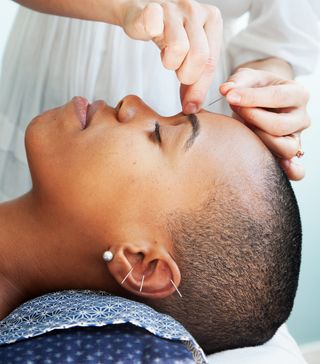
This traditional Chinese medicine treatment involves inserting thin needles into targeted areas of the body to help balance the body's qi, aka energy flow. (In case you're wondering, no, it doesn't hurt.) The American Migraine Foundation lists acupuncture as an alternative treatment that can be helpful in reducing the frequency of migraines. They point to a review that looked at 22 clinical trials involving acupuncture and migraines. This review concluded that adding acupuncture into your migraine treatment plan can help reduce the frequency of migraines. In fact, they found that frequency of migraines reduced by 50% in a majority of migraine patients who incorporated acupuncture.
5. Feverfew
Another Hogwarts-sounding potion ingredient, feverfew is actually a flower that has been found to help prevent migraines. A scientific review of "randomized, placebo-controlled, double-blind trials of feverfew mono-preparations for the prevention of migraine in human subjects" (basically, only the most legit studies that are directly applicable to humans) found that this folk remedy is, in fact, likely to be helpful in the prevention of migraines. You can find the dried leaves in capsules, extracts, and teas.
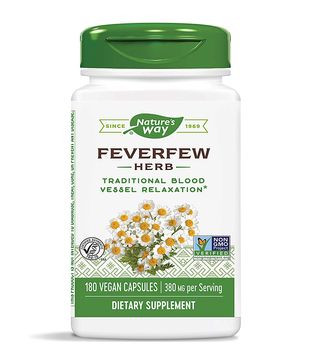
Next up: This Secret All-Natural Ingredient Has So Many Healthy Uses
This post ahs been updated by Sarah Yang.
Disclaimer
This article is provided for informational purposes only and is not intended to be used in the place of advice of your physician or other medical professionals. You should always consult with your doctor or healthcare provider first with any health-related questions.
-
 This Founder Shares Why We Should Start Celebrating Rest
This Founder Shares Why We Should Start Celebrating RestBurnout is nothing to be proud of.
By Kia Topps
-
 I Asked J.Lo's Trainer for His Very Best Fitness Tips
I Asked J.Lo's Trainer for His Very Best Fitness TipsGunnar Peterson has thoughts on how to get moving this season.
By Kia Topps
-
 This Style Influencer Turned Founder Shares Her Favorite Ways to Start the Day
This Style Influencer Turned Founder Shares Her Favorite Ways to Start the DayA morning routine from London.
By Candice Aman
-
 13 Products That Will Step Up Your Self-Care Game From Home
13 Products That Will Step Up Your Self-Care Game From HomeGet that glow from within.
By Natalie Gray Herder
-
 These 8 Foods Are the Worst for Rosacea—Here's What to Eat Instead
These 8 Foods Are the Worst for Rosacea—Here's What to Eat InsteadControl those flare-ups.
By Sarah Yang
-
 If You're Super Stressed Out, These 17 Things Can Make You Feel Better
If You're Super Stressed Out, These 17 Things Can Make You Feel BetterTry them.
By Sarah Yang
-
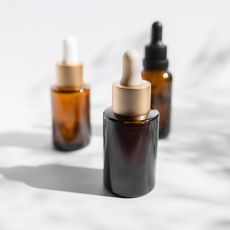 These Essential Oils Will Relieve Your Stress ASAP
These Essential Oils Will Relieve Your Stress ASAPBreathe in. Breathe out.
By Sarah Yang
-
 I Host a Mental Health Podcast—Here Are 5 Important Things I've Learned From It
I Host a Mental Health Podcast—Here Are 5 Important Things I've Learned From ItGive Been Better… HBU? a listen.
By Sarah Yang
